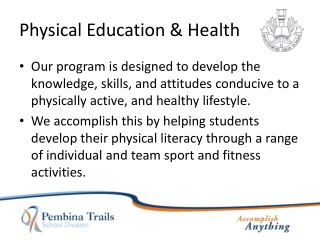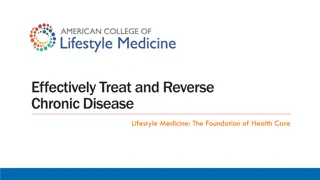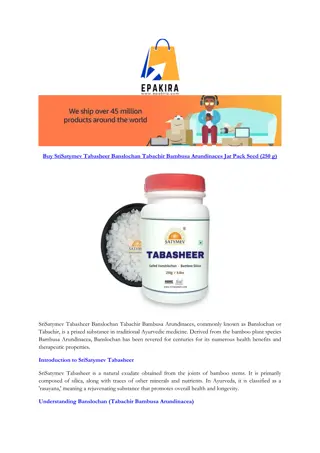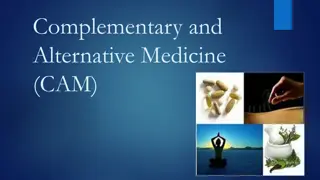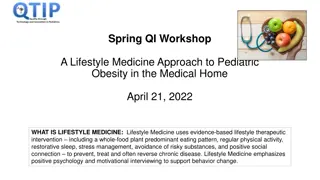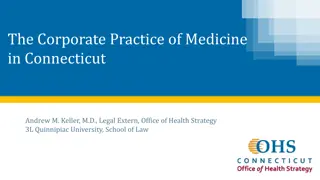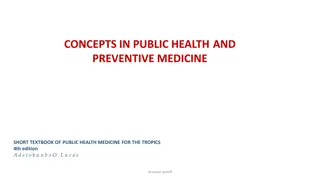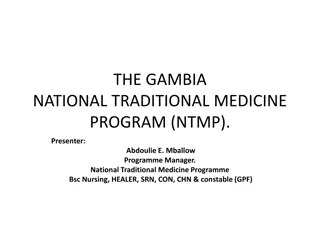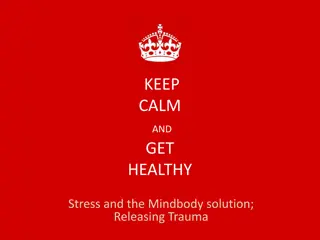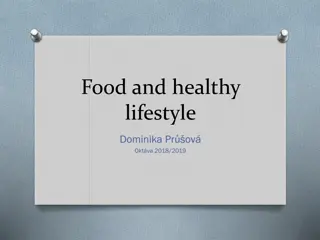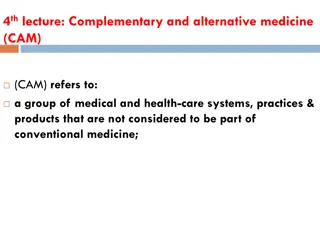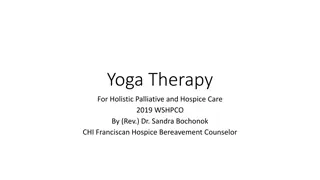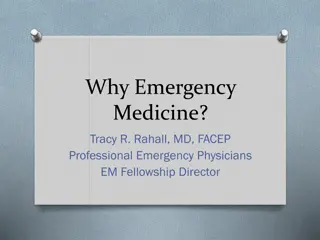Lifestyle Medicine: A Holistic Approach to Health
Lifestyle medicine is a medical specialty focused on using evidence-based lifestyle interventions to treat chronic conditions like cardiovascular diseases, type 2 diabetes, and obesity. Clinicians trained in lifestyle medicine emphasize whole-person care through nutrition, physical activity, stress management, quality sleep, social connections, and avoidance of harmful substances. The six pillars of lifestyle medicine guide practitioners in promoting wellness, preventing diseases, and even reversing health issues. The American College of Lifestyle Medicine plays a key role in advancing this transformative approach to healthcare.
Download Presentation

Please find below an Image/Link to download the presentation.
The content on the website is provided AS IS for your information and personal use only. It may not be sold, licensed, or shared on other websites without obtaining consent from the author.If you encounter any issues during the download, it is possible that the publisher has removed the file from their server.
You are allowed to download the files provided on this website for personal or commercial use, subject to the condition that they are used lawfully. All files are the property of their respective owners.
The content on the website is provided AS IS for your information and personal use only. It may not be sold, licensed, or shared on other websites without obtaining consent from the author.
E N D
Presentation Transcript
What is lifestyle medicine? Lifestyle medicine is a medical specialty that uses therapeutic lifestyle interventions as a primary modality to treat chronic conditions including, but not limited to, cardiovascular diseases, type 2 diabetes, and obesity. Lifestyle medicine certified clinicians are trained to apply evidence-based, whole-person, prescriptive lifestyle change to treat and, when used intensively, often reverse such conditions. Applying the six pillars of lifestyle medicine a whole-food, plant-predominant eating pattern, physical activity, restorative sleep, stress management, avoidance of risky substances and positive social connections also provides effective prevention for these conditions. The American College of Lifestyle Medicine (ACLM) is the medical professional society for physicians and other professionals dedicated to clinical and worksite practice of lifestyle medicine as the foundation of a transformed and sustainable health care system. 6 Pillars of Lifestyle Medicine: Nutrition Evidence supports the use of a whole food, plant-predominant diet to prevent, treat and reverse chronic illness. Physical Activity Regular, consistent physical activity is an important part of overall health and resiliency. Stress Management Managing negative stress can lessen anxiety, depression and immune dysfunction and leads to improved well-being. Restorative Sleep Improving sleep quality can improve attention span, mood, insulin resistance and can reduce hunger, sluggishness and more. Social Connection Positive social connections have beneficial effects on physical, mental and emotional health. Avoidance of Risky Substances Use of tobacco and excessive alcohol consumption have been shown to increase risk of chronic diseases and death.








